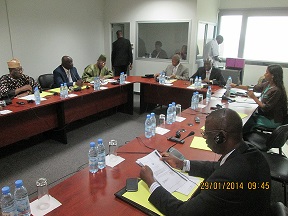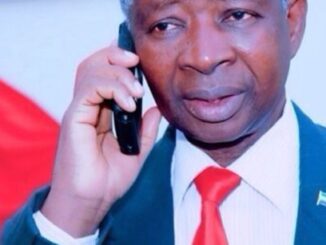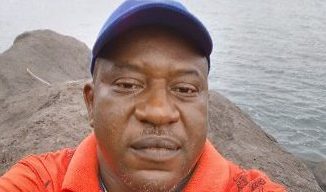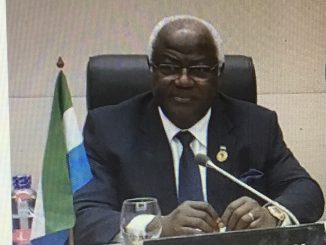
ECOWAS Group of Ambassadors in Dakar- Senegal on the invitation of The Institute for Security Studies (ISS) yesterday met in the Senegalese capital of Dakar to openly and frankly discuss the prevailing situation in the West African State of Guinea Bissau, giving what they referred to as PROBLEMATIC and as to how constitutional rule can be restored.
Ambassadors and their representatives present were – Mali, Gambia, Cape Verde, Guinea Bissau, Ghana, Niger, Liberia, Coté d’Ivore, Guinea, Sierra Leone, Burkina Faso and Togo. Subject:- The Challenges of a return to constitutional order in Guinea Bissau, vis a vis the status of the electoral process, the challenges linked to this process, the role of the International Community, ECOWAS member States internal dynamics in the search for a solution and as to how the current coups d’Etat and the institutional instability in Bissau be explained.
The Chairman and Director of ISS (Senegal) Dr. Déogratias Barakamfitiye, in his open remarks thanked all for responding for what he described as “putting themselves in the shoes of the people of Bissau”. He said the ISS had done on the ground investigation in Bissau and spoken to key players and the ordinary people and would relay to them all what had been gathered for table discussion. By and large said the Director “the prevailing situation in Bissau is unacceptable internationally and peace must be given a chance”
Representing the Dean of the ECOWAS Group of Ambassadors in Senegal, Ambassador Khadijatu Bassir, the Head of Chancery in the Sierra Leone Embassy, Sahr Johnny in his welcome address thanked the ISS for the Initiative to bring ECOWAS Ambassadors together in the quest for peace and solidarity in a sister State.
Highlighting the Problematic issues face in Bissau, with regards the electoral process, challenges, role of the International Community, management of the situation and internal dynamics of ECOWAS countries of which he pointed out could be seen in the Yamoussoukro declaration of February 28th 2013, the current process and the issue of a return to constitutional order and how to better explain the recurrent coup états and the institutional instability in the country, Sahr Johnny made it clear that the state has had its challenges but all would agree with him that “the people of Guinea Bissau deserves better”.
The Head of Chancery said that in order to understand how these and other issues mentioned could be tackled, one had to look back at their history, citing Bissau’s involvement with Portuguese from 1446-1974 and their protracted internal conflicts from the period of the forming of the PAIGC Party under Amilcal Cabral, his government in exile in Guinea and his demise in 1973. He further pointed out that the situation in Lusophone Africa, after the 1974 coup in Portugal, the rapidity of independence in lusophone Africa and the rebellions in Angola and Mozambique, could all be attributed to Guinea Bissau’s situation.
Sahr Johnny cautioned the issue of not disbanding fighters in arms before the March 16th 2014 elections and took the time to explain out Sierra Leone’s situation before going into elections after our civil conflict.
“Looking at her history and observing the position of ECOWAS States, the AU position and statements coming from the United Nations Security Council on Bissau” Mr. Johnny noted, “I consider the Council resolution 1216 of 1998. Resolution 1232 of 1999, the statement of the UN Security Council on November 2004and that of Council resolution 1880 of 2004”.
Sahr Johnny also observed the recent meeting of the Security Council 7070 th of November 2013 and the statement of the President of the Security Council with regards ensuring that authorities in Bissau tcarry out elections without further delay by March 2014.
To all present he said he hoped investigators who went to Guinea Bissau will help all to learn how the situation could be tackled and move the holistic process forward.
Senior Researcher at ISS Dr. Lori Théroux- Bénoni said the ISS went on the ground in Bissau to investigate and that their objective was to approach the state of issues in Bissau with regards the challenges of the electoral process, dynamics and the return to constitutional order. “We did try to analyze the risks involve if the March 16th election is deferred” she said.
These findings were put on the table for open and frank discussions after which comments and recommendations were made by the Ambassadors.
All and sundry however agreed that the International Community and all efforts by ECOWAS should be put forward to ensure that Guinea Bissau return to constitutional rule and peace be given a chance.
The ISS promised to make public the recommendations of the ECOWAS Group of Ambassadors.
BY:- Ralph Ese’Donnu Sawyerr,
Information Attaché,
Embassy of Sierra Leone,
In Senegal and The Gambia.
I ECOWAS Group of Ambassadors.
Sahr Johnny and Director aeeeeeeeee




Leave a Reply